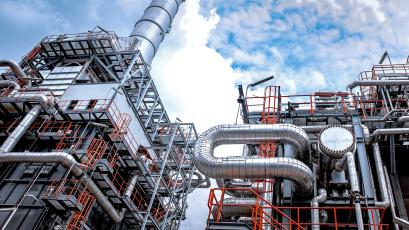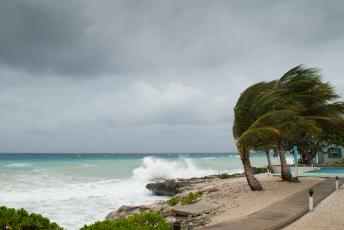The beginning of the summer season also marks the start of the long hurricane season. While summer lasts for three short months, hurricane season hangs around much longer, from June 1 to November 30.
To prepare, refiners and petrochemical facilities focus on their emergency preparedness plans year-round. This has certainly been the case this year, as early predictions have called for a very active 2024 Atlantic hurricane season due to a combination of La Niña and warm water temperatures. According to the National Oceanic Atmospheric Administration (NOAA), this “perfect” storm could lead to above-normal hurricane activity in the Atlantic basin this year. It is predicting 17-25 named storms, 8-13 hurricanes, with 4-7 becoming major hurricanes.
Planning is essential
Refining and petrochemical companies have plans in place to address safety and security issues that can arise throughout all stages of a storm. Their hurricane planning includes details on emergency management teams, facility security, logistics, communications, personnel support and government and community relations. They also have comprehensive recovery operations in place.
By closely scrutinizing past events they put a focus on learning from them to be better prepared for the future. Past storms have led to measures like building and elevating new refinery control rooms, electrical equipment, pumps and compressors to avoid flooding. Redundant power supplies and generators have been added and developed, and comprehensive preparedness plans have been executed and are continuously refined. Sites have also increased on-site containment facilities and developed additional operating procedures for startup and shutdown events.
Past events have also helped industry develop smarter risk management procedures leading to shorter refinery outages and supply disruptions that often occur during storms and impact fuel supplies. In recent years, facilities have significantly cut the time needed to restart. Facilities needed 91 days to resume operations after Hurricanes Katrina and Rita in 2005. That time was reduced to 53 days after Hurricanes Gustav and Ike in 2008, and 29 following the 2017 Hurricanes Harvey and Irma.
Following every severe hurricane, we also share best practices and invest heavily in the infrastructure and systems needed to better protect surrounding ecosystems. For example, our response to Hurricanes Harvey and Irma – just 16 days apart – demonstrated our industry’s preparedness. By investing in cutting-edge technology and advanced processes, we reduced emissions, minimized our impact on the environment, helped facilities restart production and aided communities to bounce back faster after storms than in years past.
Helping others
We are also proud of the ways our planning and recovery efforts go well beyond the gates of our facilities. AFPM member companies take immediate action at their facilities and in their communities. Many establish advanced crisis centers to support employees and help to safely meet the needs of communities struggling to recuperate after a storm.
Beyond donating millions of dollars to the Red Cross and other humanitarian organizations, AFPM member companies respond with aid in countless ways, including:
- Coordinating directly with FEMA and other government agencies;
- Pumping water out of flooding neighborhoods;
- Arranging short- and long-term housing for employees;
- Underwriting medical expenses;
- Using company engineers’ expertise to work with city officials to restore tap water to homes;
- Coordinating rental vehicles for employees whose vehicles were damaged/lost;
- Deploying company maintenance crews to employee homes to tackle clean-up and repairs; and
- Bringing convoys into affected areas and contributing supplies.
The American Fuel & Petrochemical Manufacturers (AFPM) is the leading trade association representing the makers of the fuels that keep us moving, the petrochemicals that are the essential building blocks for modern life, and the midstream companies that get our feedstocks and products where they need to go. We make the products that make life better, safer and more sustainable — we make progress.


